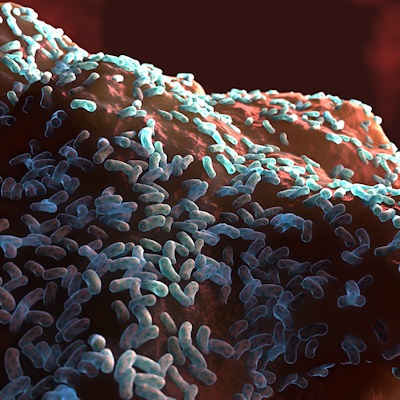November 1, 2022 -- New research, led by New York University (NYU) Grossman School of Medicine researchers, shows that SARS-CoV-2 infection reduces bacterial diversity in a patient's gut, creating opportunities for dangerous microbes to thrive.
Their study, published November 1 in the journal Nature Communications, was the first to show that the coronavirus infection itself -- not the initial antibiotics used to treat it -- damages the gut microbiome and that gut bacteria migrate into patients' bloodstreams, causing dangerous secondary infections.
Researchers first infected mice with the coronavirus and analyzed the bacteria in their stool samples. This enabled them to determine whether the coronavirus could directly disrupt the gut microbiome, independently of hospitalization and treatment.
Next, they collected stool and blood samples from 96 COVID-19 patients at NYU Langone Health and Yale University hospitals in 2020 to assess their gut microbe composition and the presence of secondary infection. Most patients had low gut microbiome diversity; 25% had a single dominant bacteria type. Simultaneously, antibiotic-resistant gut bacteria increased, possibly due to widespread antibiotic use at that time. These antibiotic-resistant bacteria escaped into the bloodstream in 20% of patients, putting them at greater risk for life-threatening secondary infections.
The researchers next plan to examine why certain microbes are more likely to escape the gut during COVID-19 and how different microbes interact, which may contribute to their migration into the bloodstream.
"Now that we have uncovered the source of this bacterial imbalance, physicians can better identify those coronavirus patients most at risk of a secondary bloodstream infection," co-senior author Ken Cadwell, PhD, microbiology professor at NYU Langone Health, said in a statement.
Disclosure: Ken Cadwell has been a consultant for Vedanta, Abbvie, GentiBio, and Synedgen. Co-senior author Jonas Schluter co-founded Postbiotics Plus Research, which develops microbiome therapies.
Copyright © 2022 scienceboard.net









